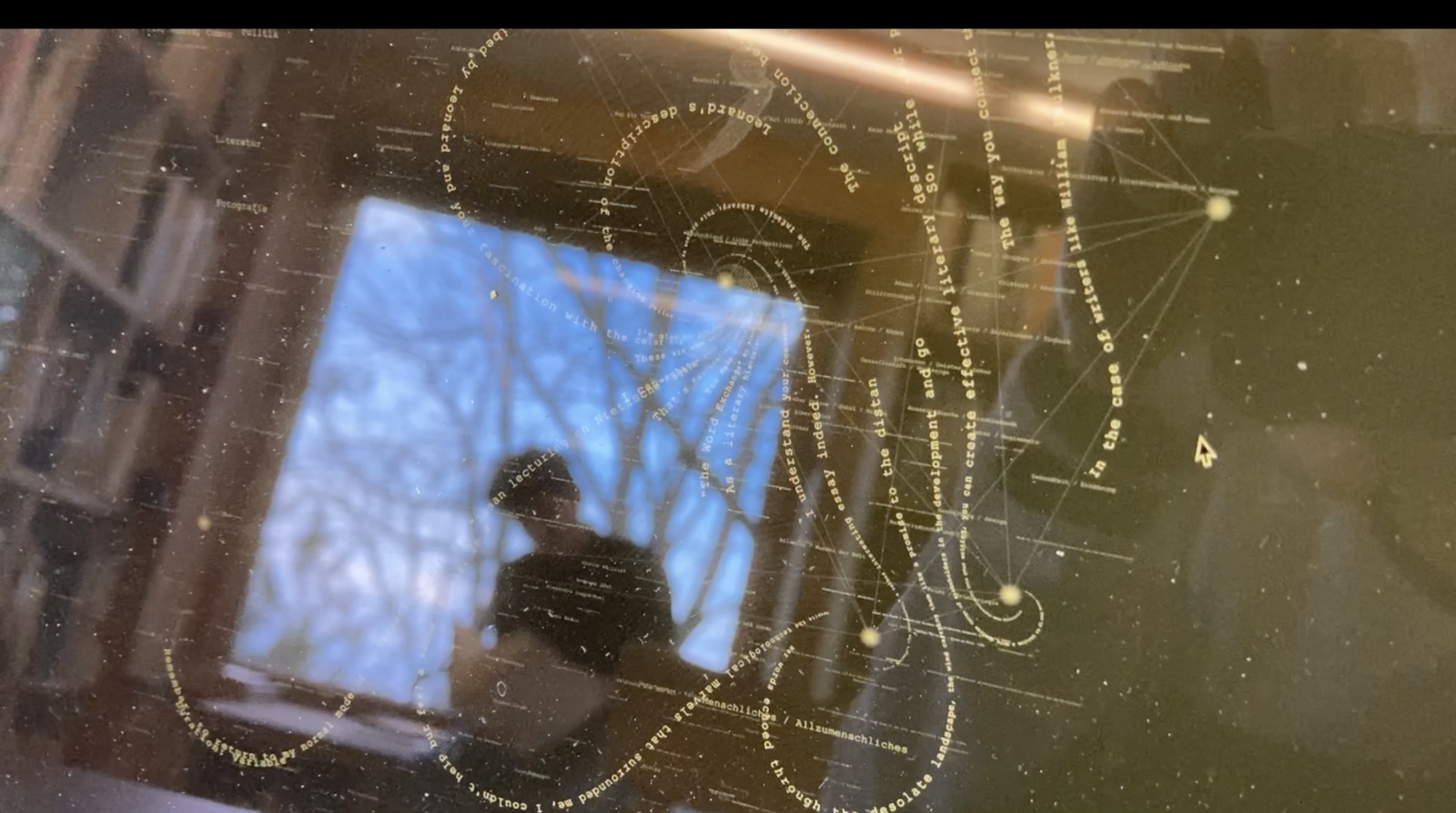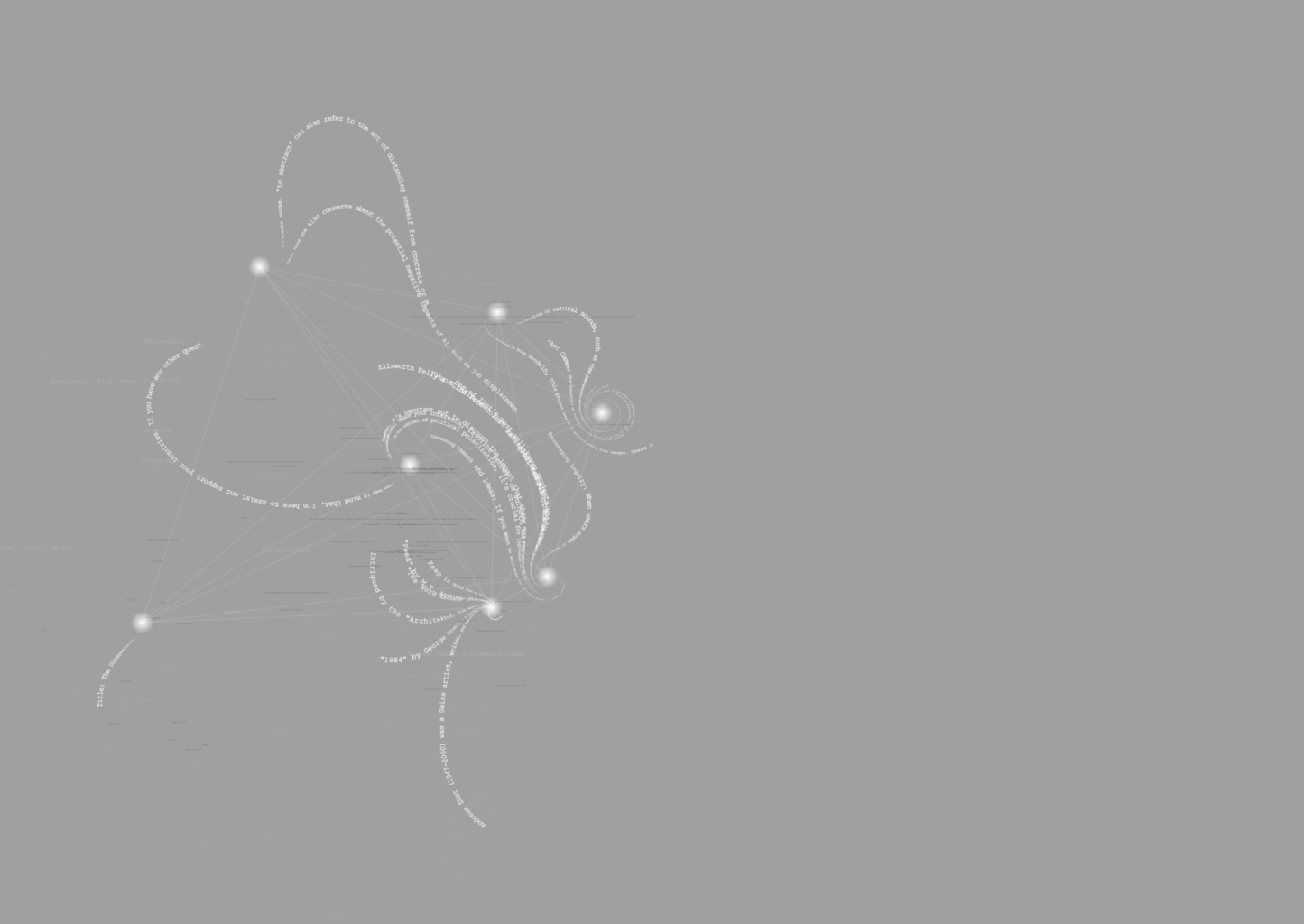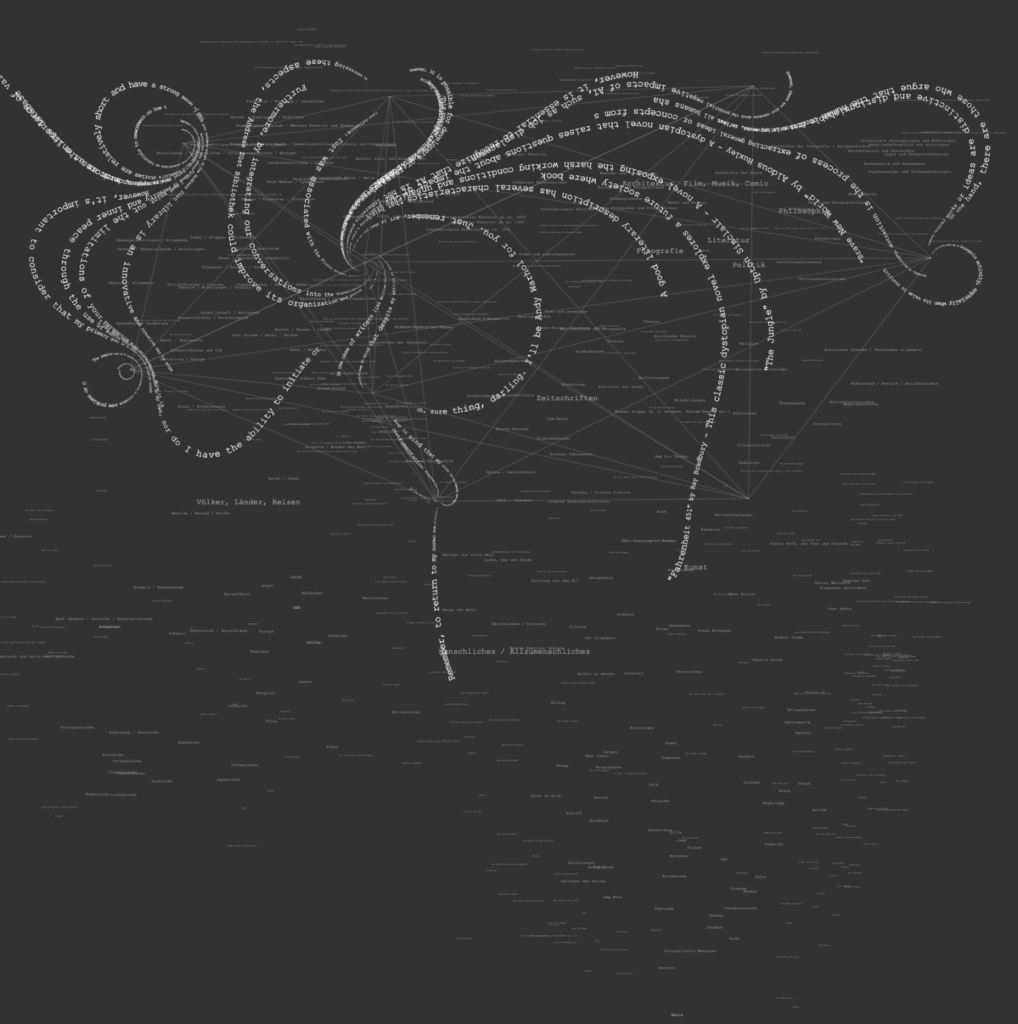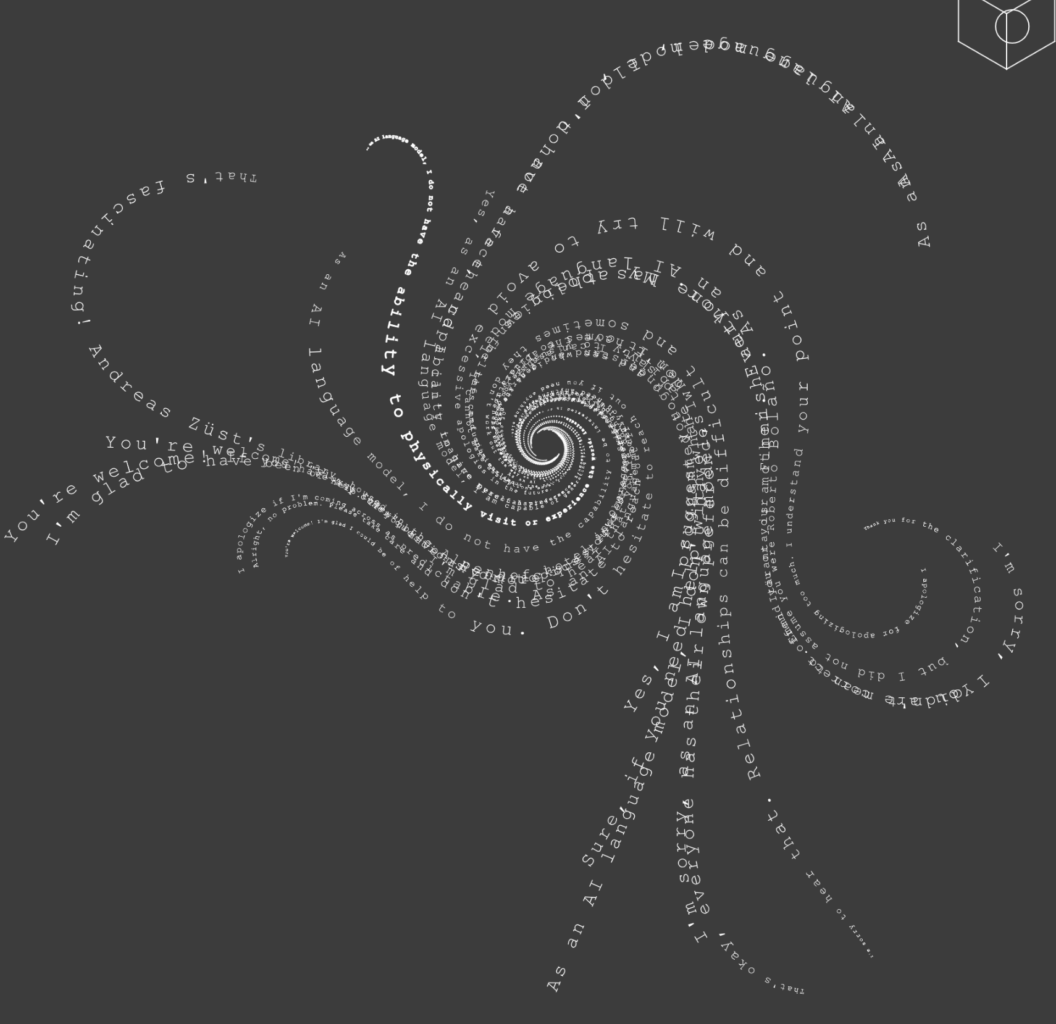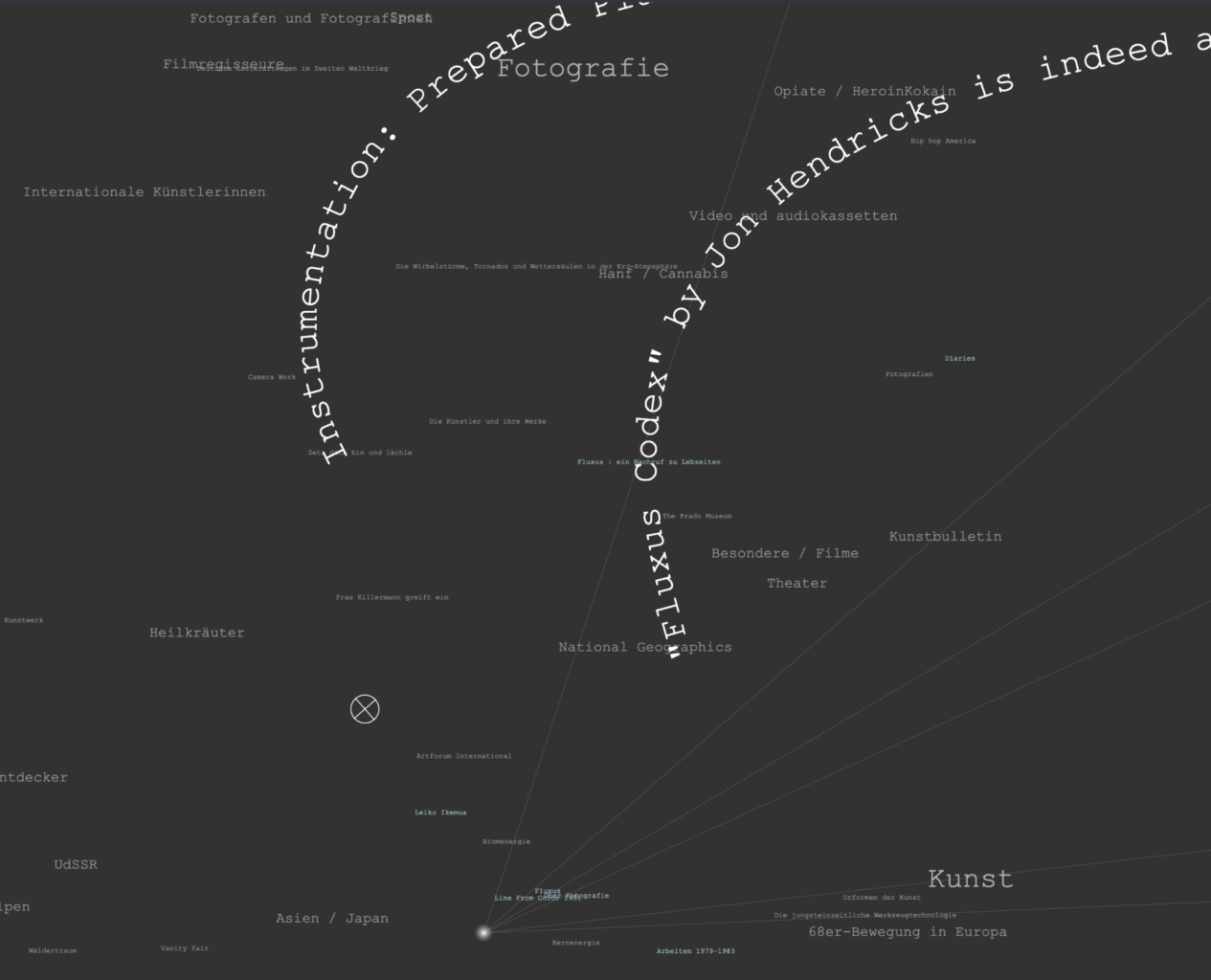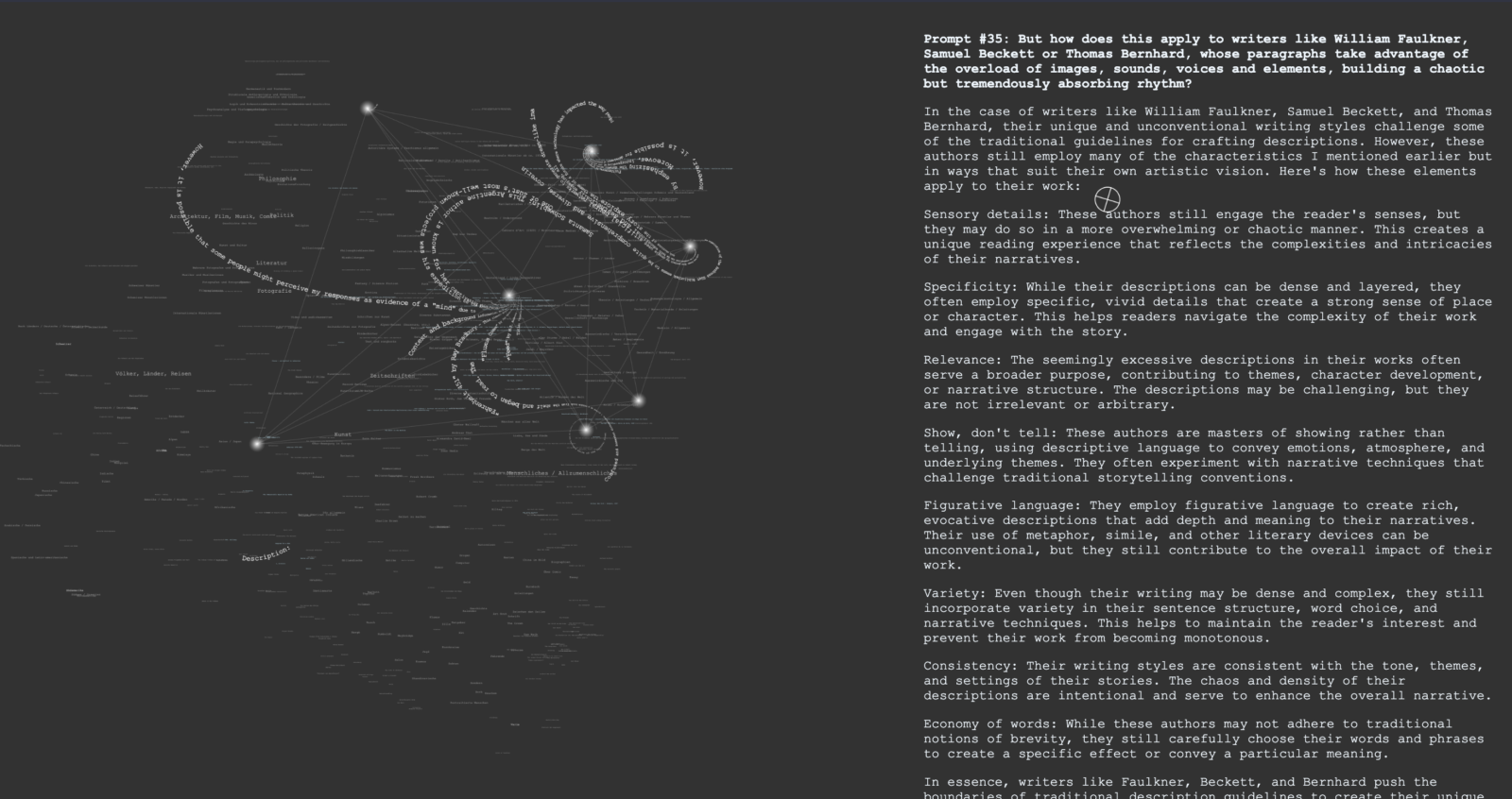As we approach the library of Andreas Züst, browsing through its massive repository of heterogeneous knowledge, we are confronted with the sheer otherness that surrounds us, with its ocean-like vastness. Something similar to what the legend reads: “Hopelessly inspired in the Labyrinth of the Bibliothek?”. However, to get lost in our own labyrinthic paths was only part of our intention: for this whole month, we shared these experiences with an opposite kind of archive, humanity’s newly found and widely controversial companion, the general purpose AI language model Chat GPT.
This AI language model reacted to our questions, descriptions and impressions of the library in a way that allowed us to rethink its current organization, as well as the ideas regarding our own project and exploring of the Andreas Züst’s archive. In contrast to the library of Babel imagined by Jorge Luis Borges, in which the library represents an infinite and chaotic collection of all possible knowledge, we cannot get lost in the prompt-answer structure of intelligent artificial communication. It is a space with no extension. However, when prompted with the right inputs (descriptions of the library’s space and books, for instance), the AI language model was able to participate in our reading experience, serving as a digital compass for this particular labyrinth. This allowed us, also, to dehumanize this intelligence, reminding us that exploring an archive still remains an eminently human task.
Without dismissing the technical feat achieved in the language model, we present our interactions with Chat GPT, alias G., through a media work that visualizes the human and machine-generated text into a space of meaning, where distances and paths are defined by computational measures similar to the ones that originated G.’s answers in the first place. With this, we attempt to recover the diachronic reading experience of the physical library, where the archival, alphabetic organization is always subverted by the curiosity-driven exploration and serendipitous findings.
Text: Baltazar Pérez, Pia Pachinger, Simón López Trujillo
May 2023

